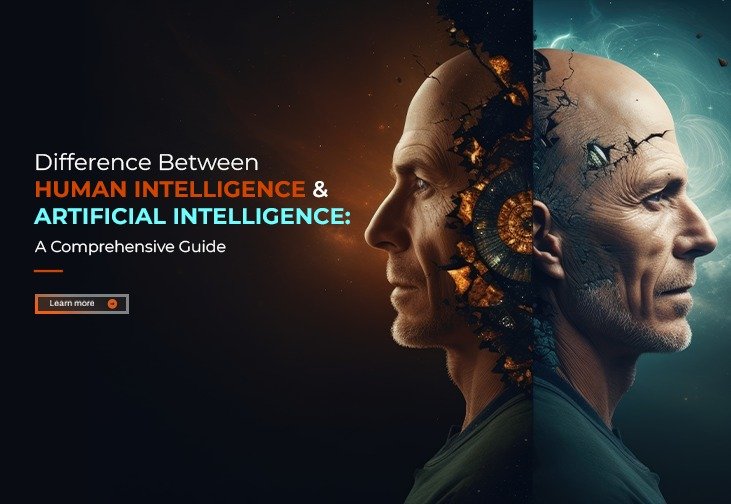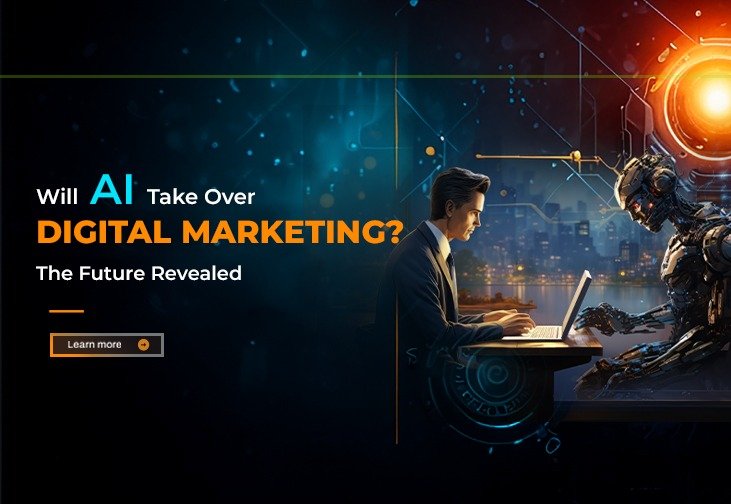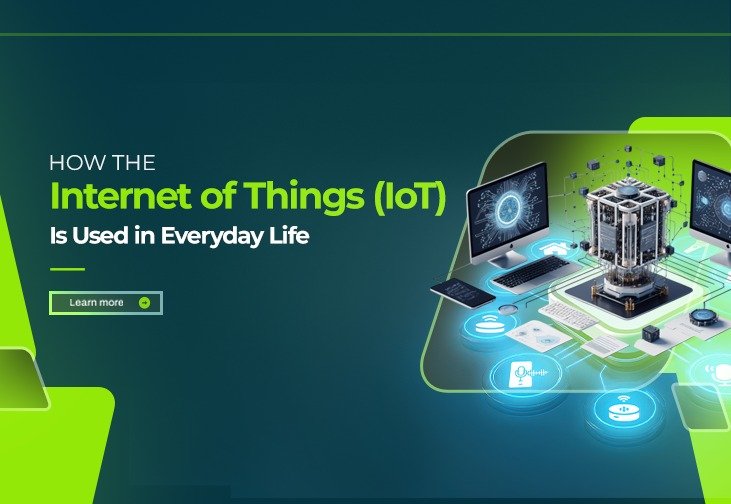In our modern world, the conversation surrounding intelligence has grown more complex than ever. As technology rapidly evolves, we’re seeing machines perform tasks that once seemed impossible without human intervention. From language translation and facial recognition to autonomous vehicles and medical diagnoses, artificial intelligence (AI) is changing the way we live and work. But despite these advancements, a critical question continues to arise — what truly separates AI from human intelligence? While both possess the capacity to learn, analyse, and make decisions, the essence of how they operate and evolve is fundamentally different. Human intelligence is rooted in consciousness, emotion, morality, and abstract reasoning developed through life experiences and social interactions. Artificial intelligence, on the other hand, is driven by data, algorithms, and machine learning frameworks. Understanding the difference between human intelligence vs artificial intelligence is essential, not just for tech professionals, but for anyone navigating the digital world.
What is Human Intelligence?
Human intelligence is the natural ability of humans to learn, understand, reason, and apply knowledge in various situations. It is influenced by both genetic factors and environmental conditions. Humans are capable of experiencing emotions, forming ethical judgments, being creative, and adapting to unfamiliar environments using intuition and common sense. Human intelligence is also shaped by culture, history, and personal upbringing, which contributes to each individual’s unique way of thinking.
Humans can solve problems without having all the data, often relying on gut feelings or emotional cues. For example, a doctor may consider a patient’s emotional state in diagnosis, something current AI systems cannot do meaningfully. Human intelligence evolves over time through experiences, learning from mistakes, and personal growth. It includes cognitive abilities such as memory, perception, language, attention, and consciousness. Unlike AI, human intelligence is capable of moral reasoning, empathy, and understanding context beyond logic.
What is Artificial Intelligence?
Artificial intelligence refers to the simulation of human intelligence in machines that are programmed to think and act like humans. These machines can be designed to perform specific tasks, from simple data sorting to complex decision-making systems. AI operates by processing massive amounts of data, identifying patterns, and making predictions based on algorithms. Unlike humans, AI does not possess consciousness, emotion, or the ability to understand deeper meaning — its intelligence is limited to the data it is trained on.
There are various forms of AI, including narrow AI and general AI. Narrow AI is focused on performing a specific task (like voice assistants or spam filters), while general AI is a more advanced concept that aims to perform any intellectual task a human can do — though it doesn’t exist yet in reality. AI can be faster and more accurate than humans in certain tasks, but it lacks the ability to be genuinely creative or emotionally aware. Despite rapid progress, the current generation of AI is limited in understanding nuance, intention, and emotional subtleties that humans grasp instinctively.
Key Differences Between Human Intelligence and Artificial Intelligence
Understanding the difference between human intelligence vs artificial intelligence requires a close look at several core aspects:
Learning and Experience: Human intelligence is shaped by lifelong learning, interactions, and personal experiences. AI learns through machine learning models trained on structured data but cannot learn in the same adaptive, emotional, or moral sense.
Emotions and Morality: Humans make decisions influenced by emotions, ethics, and social norms. AI is devoid of emotion and only follows its programming and data input.
Creativity: Humans are inherently creative, capable of producing new ideas, art, and abstract thoughts. While AI can generate content or mimic creativity, it lacks true originality or emotional connection to its output.
Flexibility and Adaptation: Humans can adapt quickly to new environments or problems, often using limited information. AI excels only within the bounds of its programming and data and may fail when presented with unfamiliar or ambiguous scenarios.
Consciousness and Self-Awareness: Perhaps the most profound difference — humans are self-aware, capable of reflection and understanding their own thoughts and emotions. AI, no matter how advanced, does not possess consciousness or true self-awareness.
How AI Tries to Mimic Human Intelligence
AI systems use methods like deep learning, neural networks, and natural language processing to mimic human-like behaviour. For instance, AI chatbots can engage in conversation, language models can write essays, and vision algorithms can recognize images. However, these tasks are performed using patterns in data rather than true comprehension. AI does not “understand” words like a human does; it merely calculates probabilities of word sequences.
In some cases, AI can outperform humans in speed and accuracy — such as detecting patterns in medical imaging or optimizing logistics — but it still relies heavily on human guidance for training, testing, and real-world application. AI lacks the ability to reason through unfamiliar problems using moral judgment, something that human intelligence does effortlessly.
Advantages and Limitations of Human Intelligence
Human intelligence is powerful because of its depth and versatility. It allows us to form relationships, navigate complex social situations, and solve problems creatively. Humans can learn from non-verbal cues, interpret tone, and build emotional connections. Our intelligence is not only cognitive but also social and emotional.
However, humans are also prone to bias, fatigue, forgetfulness, and emotional decision-making, which can sometimes lead to errors. Unlike AI, humans take longer to process large sets of data and are limited by memory and attention span.
Advantages and Limitations of Artificial Intelligence
AI excels in tasks involving large-scale data processing, repetitive actions, and pattern recognition. It does not suffer from emotional distractions or physical fatigue and can work 24/7 without breaks. In industries like finance, healthcare, and transportation, AI has introduced significant efficiency and accuracy improvements.
Yet, AI systems are only as good as the data they are trained on. Poor data quality can lead to biased or incorrect outcomes. Additionally, AI lacks the ability to question its decisions, understand nuance, or function outside of its coded framework. It also raises ethical concerns, especially when used for surveillance, job automation, or decision-making without human oversight.
Can AI Ever Match Human Intelligence?
This is one of the most debated topics in the world of science and technology. Some experts believe that future AI models may eventually replicate general human intelligence, but most agree that current AI is nowhere near human-level reasoning or consciousness. Creating machines that feel emotions, understand ethics, or behave autonomously with moral clarity remains a massive challenge.
Even if AI becomes more powerful in its analytical capabilities, it may never replicate the depth of human thought shaped by empathy, culture, and emotional complexity. The difference between human intelligence vs artificial intelligence is not just in technical performance but also in values, meaning, and awareness.
Ethical Considerations in Human-AI Collaboration
As AI becomes more integrated into our daily lives, ethical concerns arise. Should AI make decisions about human lives, such as in healthcare or criminal justice? Can AI replace human jobs without creating massive social imbalance? These questions highlight the limitations of AI and emphasize the need for careful governance.
Human oversight, transparent algorithms, and ethical AI design are crucial. Collaboration between humans and AI should enhance, not replace, the depth and quality of human thinking. Understanding the difference between human intelligence vs artificial intelligence helps us use technology responsibly and ensure that we remain the primary decision-makers in situations involving human lives and well-being.
Final Thoughts
While artificial intelligence is advancing rapidly and transforming multiple sectors, it still cannot replace the depth, empathy, and consciousness of human intelligence. The difference between human intelligence vs artificial intelligence is rooted in how we think, feel, and interact with the world around us. Humans possess the ability to feel pain, express love, reason morally, and adapt emotionally — qualities that machines have yet to come close to replicating. AI should be viewed as a powerful tool, not a replacement for human thought. By recognizing the strengths and limitations of both, we can work toward a future where humans and AI collaborate to create better outcomes — guided by our unique human values and judgment.



